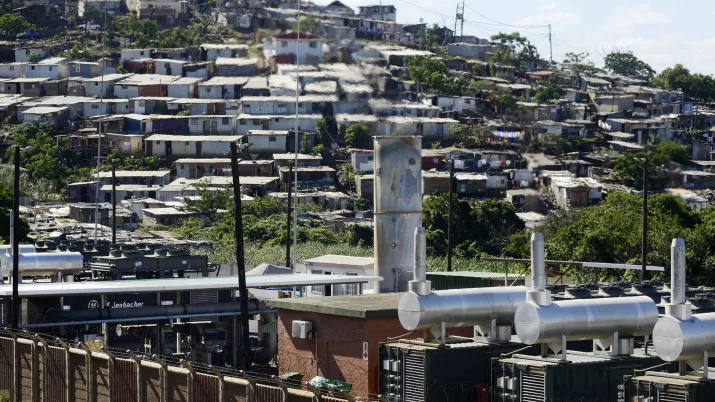Share the page
Research on inequalities

The goal of this research program is to improve our understanding of inequalities so that public policies can address them more effectively.
Multidimensional inequalities can hinder a country’s development by reducing well-being, slowing down poverty reduction, fueling social and political instability, and, over the long term, being associated with weaker economic growth. The effectiveness of development aid—and therefore of some AFD programs—will remain limited as long as high levels of inequality persist. Reducing them is therefore essential, and to do so, we must first better understand their causes and consequences.
A multidimensional approach to inequality
AFD’s research explores the multiple dimensions of inequality and their wide-ranging implications. From income and opportunity inequalities to vulnerability, poverty, and social mobility, these studies shed light on societal dynamics, the role of public policies, and how inequalities interact with other global challenges such as climate change.
AFD seeks to improve understanding of the relationship between income inequality and taxation. Through both tax systems and public spending and transfer mechanisms, fiscal policy is one of the most powerful tools available to governments to address inequality. AFD’s research aims, for example, to expand the availability of data to produce estimates of income inequality before and after taxes. These data help analyze the distribution of macroeconomic growth and provide a more accurate assessment of inequality, perceptions of inequality, and redistribution mechanisms.
Inequality, climate change, and just transition
AFD’s research is also based on the premise that inequality, climate change, and sustainability are closely interconnected. In this context, the work focuses on understanding how reducing inequalities can support climate action—especially through concepts such as just transition and energy poverty.
Finally, AFD’s studies explore the links between inequality and social dynamics. Various research projects aim to better understand how perceptions of inequality shape social outcomes, and to analyze trends related to the middle class, social cohesion, and social mobility.
Our flagship publication: Inequalities in Sub-Saharan Africa
Rising inequalities pose substantial barriers to sustainable development, and it is within this context that this book, Inequalities in Sub-Saharan Africa: Multidimensional Perspectives and Future Challenges, contributes to ongoing debates, offering a comprehensive analysis of the current challenges and future perspectives of inequality on the African continent.
Tools and methods to foster public policy dialogue
AFD’s research relies on specific tools and methodologies to better analyze inequalities and provide more effective public policy recommendations and development strategies.
A range of tools and approaches are developed and/or applied within AFD’s research projects to support public policy dialogue to address inequalities in partner countries:
The inequality diagnostic provides an overview of multidimensional inequalities in a given country based on available data, helping policymakers identify priorities for reducing inequality. It is a tool jointly developed with the African Centre of Excellence for Inequality Research (ACEIR).
Fiscal incidence analysis, developed by the Commitment to Equity (CEQ) Institute, assesses the redistributive impact of fiscal and budgetary policies.
This tool is currently being expanded to new countries and updated in others where previous analyses exist, with the aim of identifying the most effective policies for reducing poverty and inequality—working closely with partner governments.
The Multidimensional Inequality Framework, developed by Oxfam, is used to analyze the root causes and multiple dimensions of inequality in specific contexts. It is grounded in Amartya Sen’s capability approach and offers a comprehensive lens for addressing complex social disparities.
A dedicated Research Facility on Inequalities
AFD and the European Union have both made tackling inequalities a strategic priority. In this context, the two institutions launched a joint initiative in 2017, the EU-AFD Research Facility on Inequalities:
- During its first phase (2017–2020), the Facility supported 22 research projects across 32 countries, aiming to improve understanding of socioeconomic inequalities—their root causes, consequences, and dynamics. More than 100 research papers and policy briefs were published, contributing to academic debate while also initiating national-level policy dialogues on inequality.
- Building on the success of this first phase, an Extension of the EU-AFD Research Facility on Inequalities was launched in 2021. This second phase focuses on supporting the design of inequality reduction policies in four partner countries: South Africa, Colombia, Indonesia, and Mexico.
In the long run, this research- and capacity-building-based program will help partner countries and development actors better understand inequality dynamics and design more effective public policies in response.
Some of our research projects on inequalities

Redesigning the South African “Social Relief Distress” grant program for higher impact
Completed
2023 - 2023


Our upcoming events
Bridging Divides: Evidence-Based Policies for Inequality Reduction and Sustainable Development
International conference of the EU-AFD Research Facility on Inequalities



